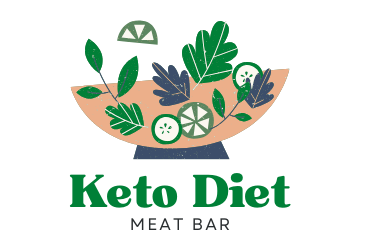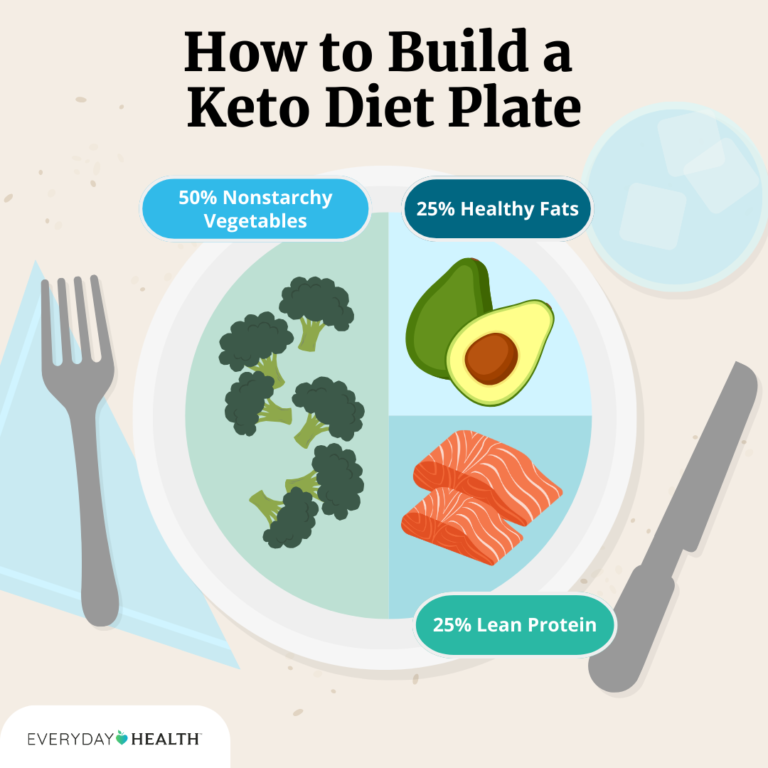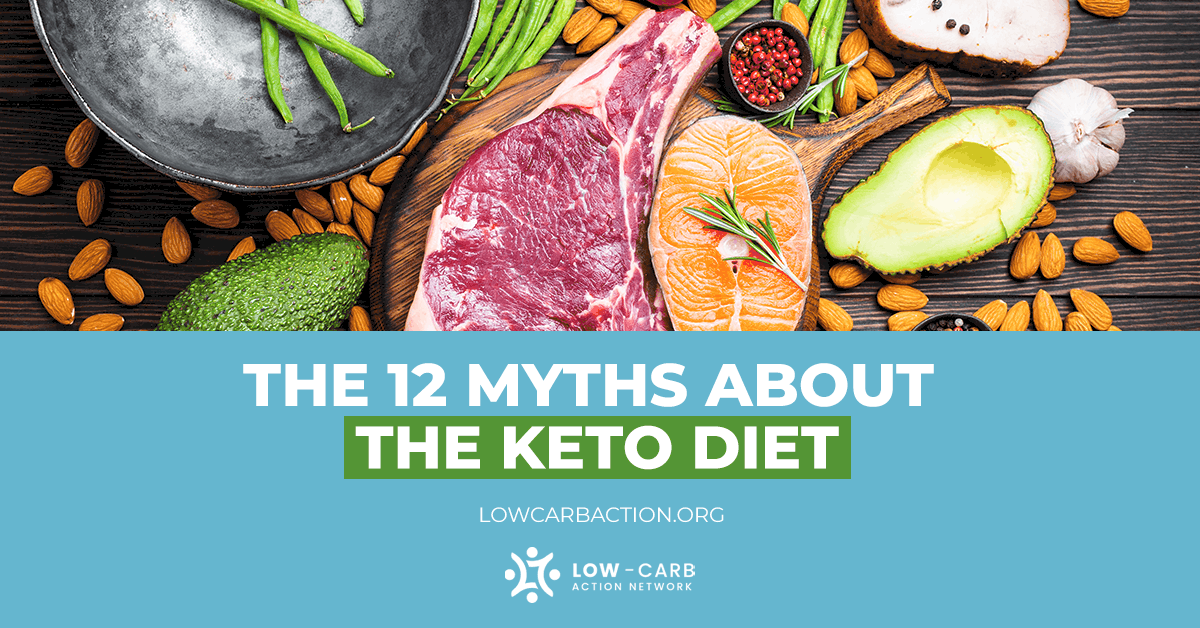Common Myths About the Keto Diet: Exposing Misguided Judgments
The ketogenic (keto) diet has gained significant popularity recently. It is characterized by a high fat intake, moderate protein, and low carbohydrates. The keto diet is often promoted for its effectiveness in weight loss, improving mental clarity, and managing specific health conditions like epilepsy and type 2 diabetes. However, despite its growing popularity, many myths and misconceptions about the keto diet have emerged, leading to confusion and misinformation.
There are many myths about the keto diet, ranging from misconceptions about its long-term health effects to confusion over what foods are allowed. These myths often discourage people from trying the diet or mislead them in the wrong direction. In this blog, we will clarify the most common myths about the keto diet and reveal the truths behind them. Whether you’re considering starting keto or are currently following it, this article will help distinguish fact from fiction.
Myth 1: Keto is simply one more high-protein diet.
Reality:
One of the greatest misinterpretations about the keto diet is that it’s simply one more variant of a high-protein, low-carb diet like Atkins. As a general rule, the keto diet is a high-fat, moderate-protein, and low-carb diet.
Clarification:
The essential objective of the ketogenic diet is to place your body into a condition of ketosis, where it consumes fat for fuel rather than carbs. To accomplish this, the macronutrient breakdown of the keto diet regularly seems to be this:
- 70-75% fat
- 20-25% protein
- 5-10% carbs
Eating a lot of protein can forestall ketosis because the body can change the overabundance of protein into glucose, which will be utilized for energy rather than fat. In a legitimate keto diet, protein is kept at moderate levels, not unreasonable. The accentuation is on devouring solid fats like avocados, olive oil, and greasy fish instead of simply stacking up on protein-weighty food varieties like steak or chicken bosom.
Myth 2: You Can Eat Limitless Measures of Fat on Keto
Reality:
While the keto diet is high in fat, this doesn’t mean you can eat limitless amounts of any fat without results.
Clarification:
The keto diet can eat the right sorts of fats in suitable amounts, and not enjoy exorbitant measures of unfortunate fats like handled oils or seared food varieties. While fat is the fundamental wellspring of energy on keto, getting carried away with fat admission can in any case prompt weight gain, assuming you are eating a bigger number of calories than your body needs.
It’s vital to center around consuming solid fats, for example,
- Monounsaturated fats: olive oil, avocados
- Polyunsaturated fats: greasy fish, pecans, flaxseeds
- Soaked fats (with some restraint): Spread, ghee, coconut oil
Stacking up on handled fats or low-quality food (regardless of whether it’s low in carbs) is counterproductive to the drawn-out medical advantages of the keto diet.
Myth 3: Keto Prompts Supplement Inadequacies
Reality:
While the facts really confirm that following any prohibitive eating regimen without legitimate arrangements can prompt supplement inadequacies, a very well-arranged keto diet can in any case give every one of the fundamental nutrients and minerals.
Clarification:
One of the worries individuals have is that killing carbs from the eating regimen will prompt a lack of fundamental supplements, especially from natural products, vegetables, and entire grains. Notwithstanding, keto devotees can in any case eat a wide assortment of supplement-heavy, low-carb food varieties that supply fundamental nutrients and minerals, for example,
- Mixed greens (spinach, kale, arugula)
- Cruciferous vegetables (broccoli, cauliflower, Brussels sprouts)
- Avocados
- Nuts and seeds
- Berries (with some restraint)
- Greasy fish (salmon, mackerel)
To guarantee a fair admission of supplements, you ought to expand your food decisions on keto and may likewise consider enhancing with electrolytes (like magnesium, potassium, and sodium) and perhaps fiber to help stomach-related well-being.
Myth 4: The Keto Diet is Risky for Your Heart
Reality:
Despite mainstream thinking, the keto diet can really have heart medical advantages when done accurately, including further developed cholesterol levels and a lower pulse.
Clarification:
Many individuals partner a high-fat eating regimen with an expanded risk of coronary illness. This conviction comes from obsolete exploration that connected dietary fat—particularly immersed fat—with heart issues. Nonetheless, ongoing examinations have shown that the connection between fat admission and coronary illness is surprisingly perplexing.
The keto diet, when in light of solid fats, has been displayed to:
- Increment HDL cholesterol (the “upside” cholesterol)
- Lower fatty oils (fat in the blood)
- Further develop LDL molecule size (moving from little, thick LDL to huge, cushy LDL, which is less hurtful).
Besides, the eating regimen’s calming impacts and its capacity to balance out glucose levels can contribute to better heart well-being. The key is to zero in on entire food sources and healthy fats while staying away from trans fats and exceptionally handled fats that can add to cardiovascular issues.
Myth 5: You’ll Lose Muscle on the Keto Diet
Reality:
With sufficient protein admission and exercise, the keto diet can assist you with keeping up with, and even form, bulk.
Clarification:
Many individuals accept that slicing starches will prompt muscle misfortune because carbs are much of the time remembered to be fundamental for muscle development. Nonetheless, studies have shown that a ketogenic diet, when joined with sufficient protein admission and opposition preparation, can uphold muscle support and development.
Ketones give an elective fuel source to your muscles, and a protein blend can in any case happen successfully on a low-carb diet. As a matter of fact, the keto diet can assist with saving bulk by lessening muscle breakdown, particularly during weight reduction, since your body is utilizing fat (and not muscle) for fuel.
For those hoping to assemble or keep up with muscle on keto, consuming sufficient protein and remaining predictable with strength preparation is vital.
Myth 6: Keto Causes “Ketoacidosis,” Which is Risky
Reality:
Ketoacidosis is a hazardous condition frequently mistaken for ketosis. Notwithstanding, the two are altogether different.
Clarification:
Ketosis is a characteristic metabolic expression that happens when the body involves fat for energy rather than sugars. This state is protected and is the objective of the keto diet. Conversely, ketoacidosis is an ailment that happens when blood ketone levels become hazardously high, prompting a harmful corrosive development in the blood. Ketoacidosis commonly occurs in people with type 1 diabetes and isn’t a worry for sound people following a ketogenic diet.
Individuals on the keto diet expect to keep up with wholesome ketosis, where ketone levels are moderate (regularly between 0.5 and 3.0 mmol/L). Ketoacidosis, then again, includes ketone levels that are a lot higher and are connected to a hidden clinical issue, not a diet.
Myth 7: Keto is Only a Craze Diet
Reality:
While the keto diet has acquired prevalence as of late, it is nowhere near a “craze” diet. As a matter of fact, the keto diet has been around for more than a long time and was initially evolved to treat epilepsy.
Clarification:
The ketogenic diet was first presented during the 1920s as a remedial instrument for people with epileptic seizures who didn’t respond well to drugs. From that point forward, the eating routine has been broadly read up for its possible advantages, for weight reduction as well as for overseeing ongoing circumstances like type 2 diabetes, PCOS, Alzheimer’s infection, and, surprisingly, certain tumors.
Additionally, keto’s attention to entire, natural food varieties and solid fats makes it manageable for long-haul wellbeing and weight upkeep. Not at all like numerous trend slims down that go back and forth, the ketogenic diet has major areas of strength for an establishment and brings about different fields of well-being.
Clearing Up the Keto Confusion
The ketogenic diet offers several medical benefits, including weight loss, improved mental clarity, and even the management of chronic conditions. However, its popularity has also led to a rise in myths about the keto diet and misconceptions. fiction, we can see that the keto diet, when done accurately, is a protected and powerful method for working on general well-being. It’s anything but a high-protein or unfortunate fat eating regimen; it doesn’t be guaranteed to cause supplement lacks, and it has irrefutably factual heart medical advantages. To take advantage of keto, center around entire food varieties, solid fats, and appropriate macronutrient balance.
Whether you’re thinking about attempting keto or are now a keto supporter, being educated about the science behind the eating regimen will assist you with staying away from the normal confusion and guarantee you accomplish the outcomes you’re searching for.
Want to dive deeper into the keto diet? Discover all the essentials and benefits right here.



